Cairo, Egypt – President Dr. Rashad Mohammed Alimi, head of the Presidential Leadership Council of Yemen, affirmed the Yemeni government’s commitment to overcoming the devastating effects of war, fueled by the Iranian-backed Houthi militias. He made these remarks during his speech at the 12th World Urban Forum, which commenced today in Cairo, Egypt. The forum gathers thousands of representatives from national, regional, and local governments, academics, business leaders, urban planners, and civil society to discuss pressing urban challenges facing the world today.
The Impact of War on Yemen’s Infrastructure
In his address, President Alimi highlighted the severe destruction caused by the Houthi militias in Yemen, which has devastated key infrastructure and essential services. He pointed to significant damage in sectors such as electricity, transportation, ports, airports, bridges, factories, and commercial facilities.
The president emphasized that the economic losses for Yemen’s national economy and urban areas continue to escalate. According to estimates from the United Nations Development Programme, these losses could reach approximately $657 billion by 2030 if the war persists and the Houthis do not respond to calls for peace and development.
Urban Services and Housing Crisis
Alimi provided alarming statistics indicating that urban services in Yemen have suffered extensive damage. He noted that 49% of energy sector assets and 38% of water and sanitation facilities have been impacted. Additionally, the internal road networks and telecommunications infrastructure have also incurred significant costs. The housing sector has faced severe setbacks, with around 16 Yemeni cities regressing decades due to the conflict.
Structural and Financial Challenges
The president addressed the complex structural and financial challenges confronting the Yemeni government, especially in light of climate change. He explained that these challenges have exacerbated the urgent need for emergency interventions and slowed the implementation of urban development plans at all levels.
Recent natural disasters, including powerful hurricanes, have caused widespread destruction in Yemen. From April to August of this year alone, sudden floods resulted in numerous casualties, displacing over 100,000 people and inflicting an estimated $350 million in damages to infrastructure and agricultural holdings.
Acknowledgment of International Support
In his speech, President Alimi expressed gratitude to the Kingdom of Saudi Arabia, the United Arab Emirates, the Arab Republic of Egypt, and other countries in the Coalition Supporting Legitimacy for their significant efforts to alleviate the war’s impact on the Yemeni people. He emphasized their role in preventing a complete collapse of Yemen’s national institutions.
Celebrating Egypt’s Urban Development
President Alimi praised Egypt for hosting the World Urban Forum, which he described as a vital event focused on urbanization and development. He noted that Cairo’s selection as the venue symbolizes the forum’s philosophy and objectives, highlighting the city’s rich urban heritage that has evolved under President Abdel Fattah el-Sisi’s leadership.
He suggested that Yemen and other countries could benefit from Egypt’s successful experiences in urban development and reconstruction. By leveraging the expertise of Egyptian companies and professionals, Yemen could address its national urban development needs effectively.
The opening session of the World Urban Forum also featured the participation of key Yemeni officials, including Nasser Taha Mustafa, advisor to the President of the Presidential Leadership Council, Foreign Minister Dr. Shaaib Al-Zandani, Minister of Public Works and Roads Engineer Salem Al-Huraizi, and Yemen’s Ambassador to Cairo, Khaled Mahfouz Bahah.
This forum represents a crucial opportunity for nations to collaborate on solutions to urban challenges and enhance resilience against the impacts of conflict and climate change.
To follow the news in Arabic
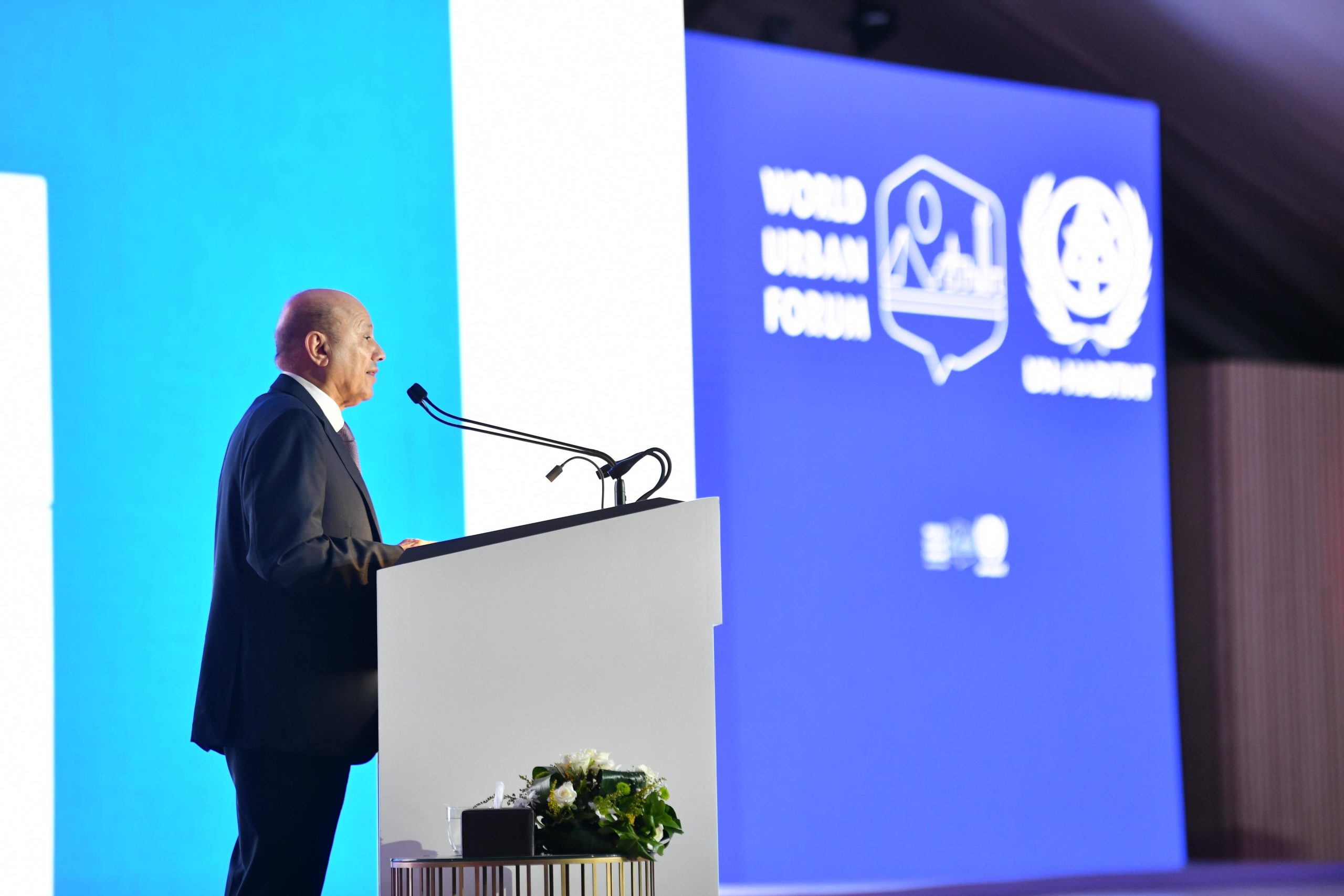
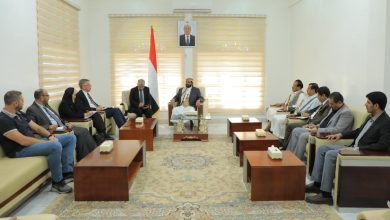 Al-Aradah discusses military and security developments with the UN envoy’s military advisor and their impact on the peace process.
Al-Aradah discusses military and security developments with the UN envoy’s military advisor and their impact on the peace process.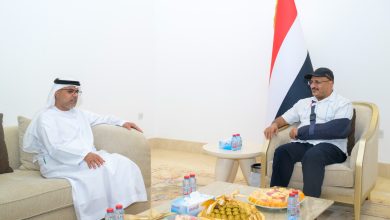 Tariq Saleh discusses the latest developments with the UAE ambassador.
Tariq Saleh discusses the latest developments with the UAE ambassador.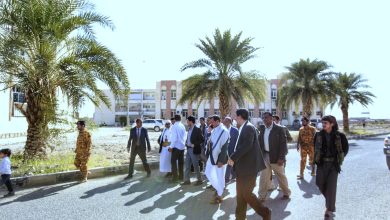 Mareb officials and the Technical Education Authority launch the furnishing of the Community College, funded by Kuwait.
Mareb officials and the Technical Education Authority launch the furnishing of the Community College, funded by Kuwait.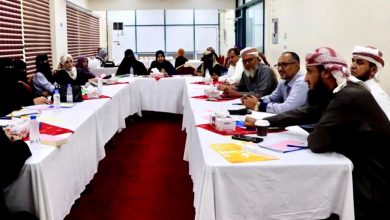 Workshop on violence against girls concludes in Aden, focusing on awareness and prevention strategies.
Workshop on violence against girls concludes in Aden, focusing on awareness and prevention strategies. Training customs personnel in Qatar on monitoring strategic goods.
Training customs personnel in Qatar on monitoring strategic goods. Al-Thuqali discusses efforts to document the Socotri language and directs preparations for the heavy vehicles site at the port.
Al-Thuqali discusses efforts to document the Socotri language and directs preparations for the heavy vehicles site at the port.